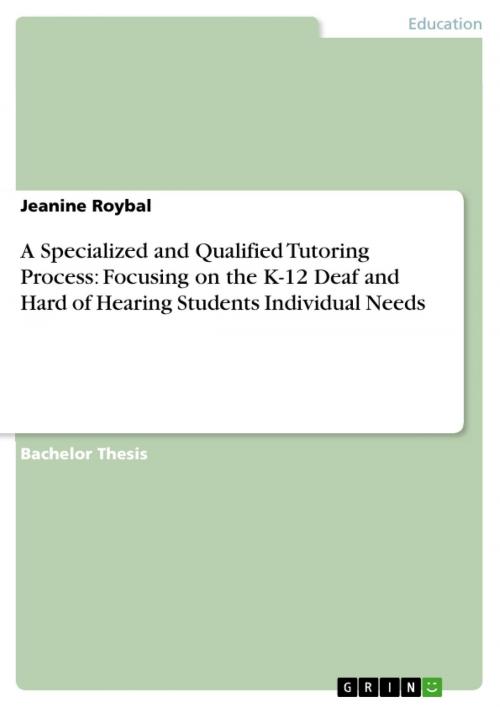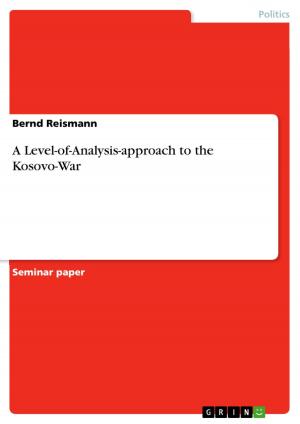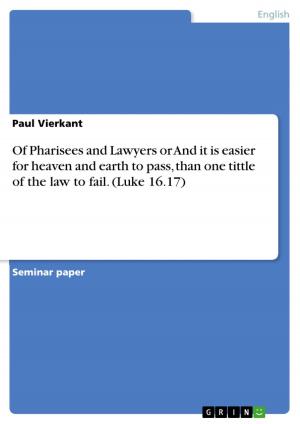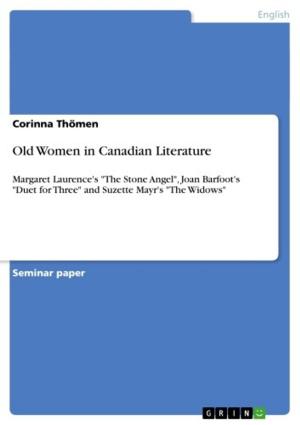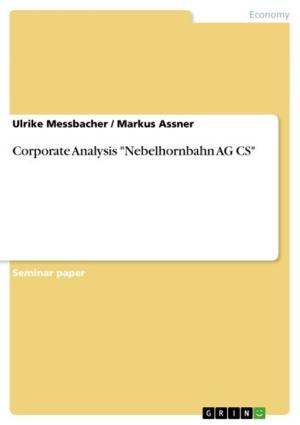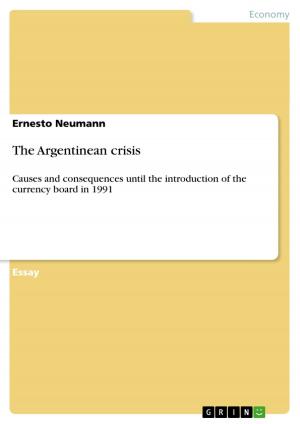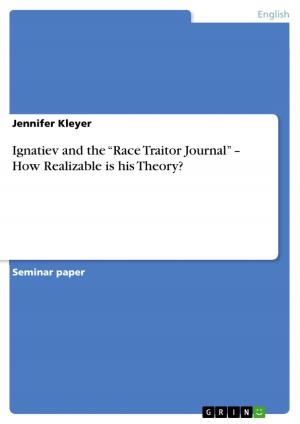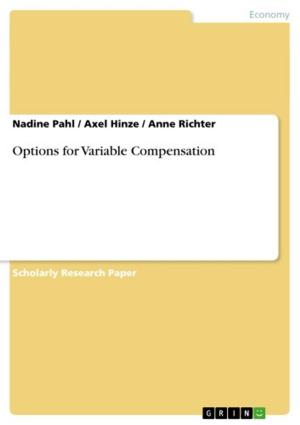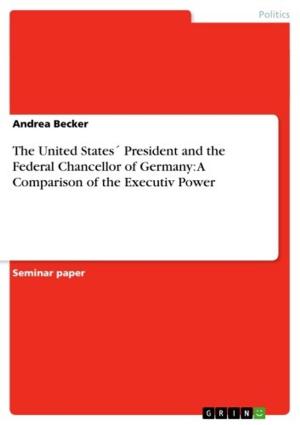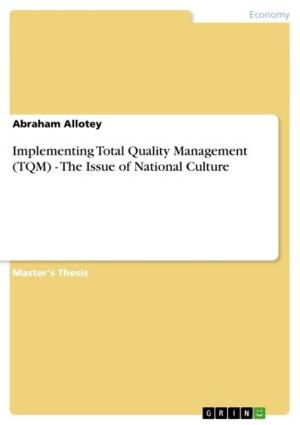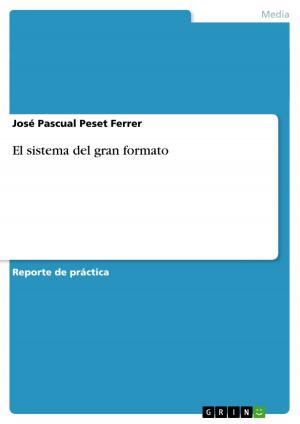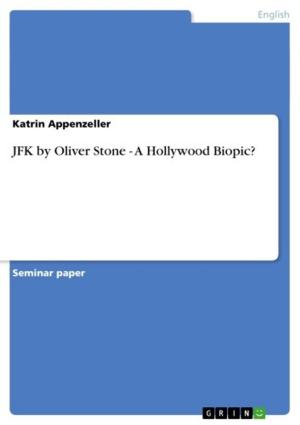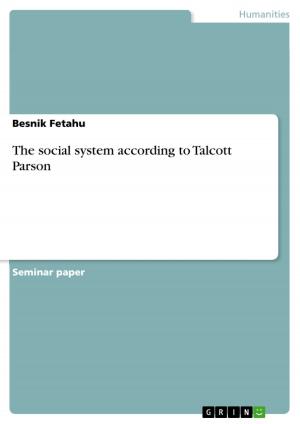A Specialized and Qualified Tutoring Process: Focusing on the K-12 Deaf and Hard of Hearing Students Individual Needs
A Specialized and Qualified Tutoring Process: K-12 Deaf and Hard of Hearing Students
Nonfiction, Reference & Language, Education & Teaching, Special Education| Author: | Jeanine Roybal | ISBN: | 9783656277675 |
| Publisher: | GRIN Publishing | Publication: | September 24, 2012 |
| Imprint: | GRIN Publishing | Language: | English |
| Author: | Jeanine Roybal |
| ISBN: | 9783656277675 |
| Publisher: | GRIN Publishing |
| Publication: | September 24, 2012 |
| Imprint: | GRIN Publishing |
| Language: | English |
Bachelor Thesis from the year 2011 in the subject Pedagogy - Orthopaedagogy and Special Education, Regis University-ColoradoRegis University-Colorado, course: Community Interpreting for the Deaf: Capstone, language: English, abstract: Rigorous analysis emphasizes the critical need (while providing the credentials required) for creating a best practice tutoring curriculum process for deaf and hard of hearing( d/hoh) American K-12 special education students. Identifying the unique and individual learning needs and styles of these students is the crux of curriculum development. The creating of a theoretical process for a consistently varying and situational dependent need has not been developed or implemented in this current educational field. This project successfully presents a twenty-first century best practice tutoring curriculum process that converges limited research from the past with the practices in the present; while moralistically holding space for future academic needs to be addressed. This work addresses the current special education crisis by synthesizing and expanding existing mental models in order to develop a successful best practice tutoring curriculum development process that will be repetitively and accurately implemented with appropriate training.
Bachelor Thesis from the year 2011 in the subject Pedagogy - Orthopaedagogy and Special Education, Regis University-ColoradoRegis University-Colorado, course: Community Interpreting for the Deaf: Capstone, language: English, abstract: Rigorous analysis emphasizes the critical need (while providing the credentials required) for creating a best practice tutoring curriculum process for deaf and hard of hearing( d/hoh) American K-12 special education students. Identifying the unique and individual learning needs and styles of these students is the crux of curriculum development. The creating of a theoretical process for a consistently varying and situational dependent need has not been developed or implemented in this current educational field. This project successfully presents a twenty-first century best practice tutoring curriculum process that converges limited research from the past with the practices in the present; while moralistically holding space for future academic needs to be addressed. This work addresses the current special education crisis by synthesizing and expanding existing mental models in order to develop a successful best practice tutoring curriculum development process that will be repetitively and accurately implemented with appropriate training.
